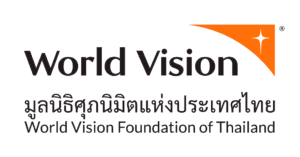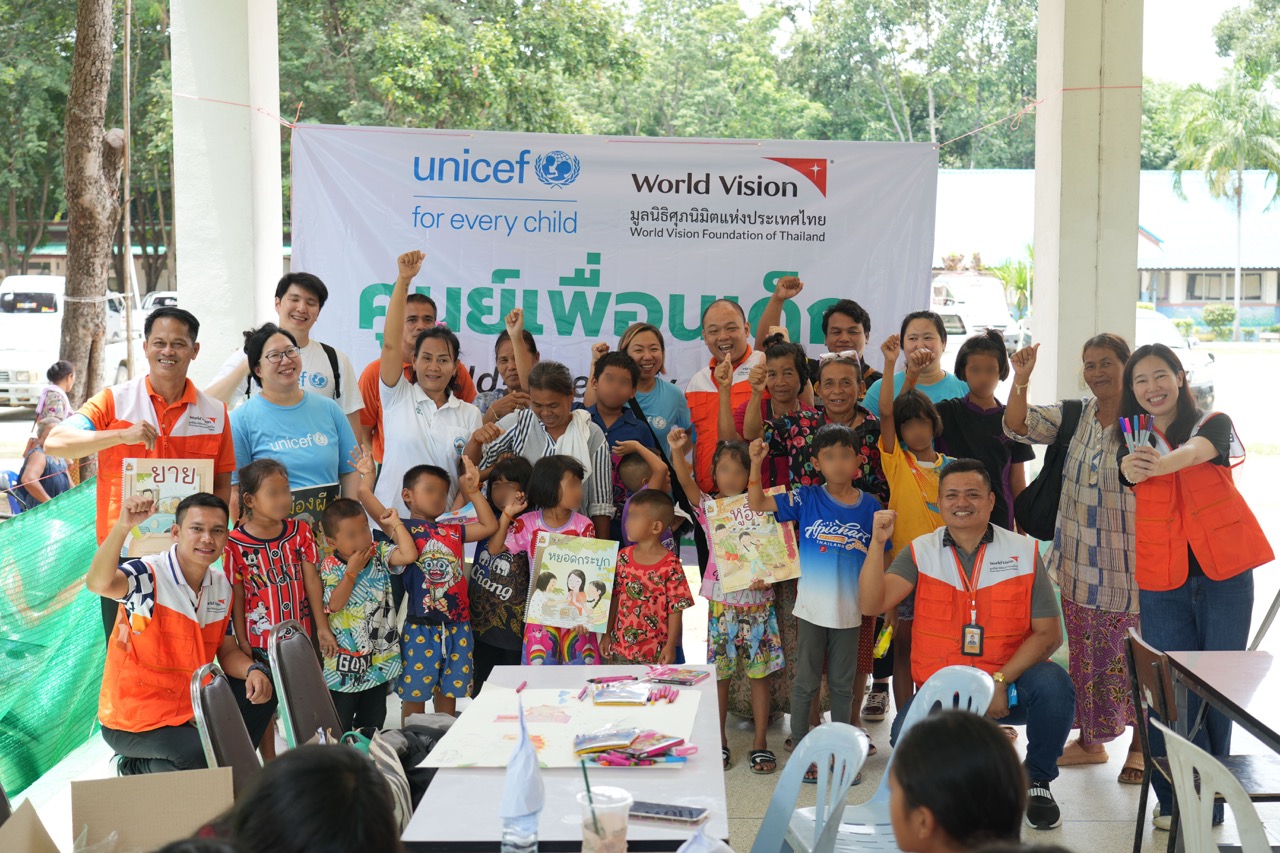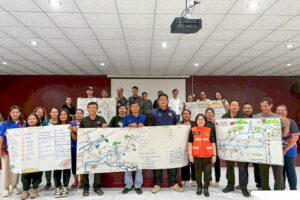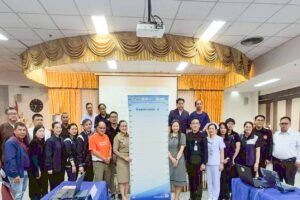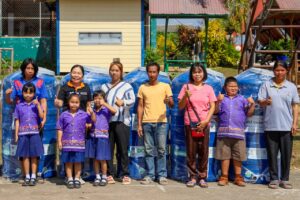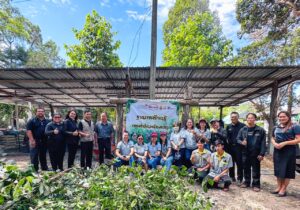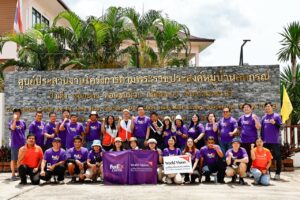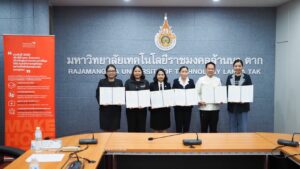World Vision Foundation of Thailand, in collaboration with UNICEF, recently visited temporary shelters in Surin and Sisaket provinces to establish Child-Friendly Spaces—safe environments designed to protect children and support their mental health recovery. These spaces also provide opportunities for continuous learning and development, while giving parents and communities peace of mind, knowing their children are safe as they stay in temporary shelters.
Reflecting on the early days of the crisis, Yut, a World Vision Thailand volunteer, shared with a trembling voice, “The first day I saw the children, I cried. It was heartbreaking—especially for the little ones who had no idea what was happening.” She has witnessed the transformation of these children since the day they arrived.
When the unrest along the Thai–Cambodian border forced people to flee their homes, local authorities set up temporary shelters, with village heads and committees stepping in to manage the situation. Yut has been helping since 24 July 2025. “On the first day, there were around 200 people, and the number kept growing, over 300 eventually. There were people of all ages: children, the elderly, even bedridden patients,” she recalled.
The initial support came from the community itself. “At first, villagers pooled their resources, raising funds, setting up a communal kitchen, cleaning the area, arranging tables, tents, plates, and rice cookers. We bought eggs, tinned fish, vegetables, and papayas to cook for the evacuees.” Yut has not missed a single day. “I go every day, from early morning. I serve food to the displaced families—some days I stay until 9 pm.”
Soon, support from organisations, including World Vision Thailand, arrived just in time. “World Vision Thailand brought so much support, like eggs, instant noodles, drinking water, and other essentials. When the staff arrived, the villagers were overjoyed. It felt like someone was truly standing beside us,” Yut said, visibly moved.
Beyond physical needs like food and shelter, emotional support for displaced families is just as vital. World Vision Thailand and its partner organised activities for children. “World Vision Thailand and UNICEF brought sketchbooks and pencils for the children to draw. They were worried the kids might be stressed. The children were really engaged—they wanted to learn, especially since they had not been to school for days,” Yut added.
For Yut, being part of this effort means more than just fulfilling a duty. “I am happiest when I can help others. I am proud to have been born with the chance to support fellow human beings. I want to keep volunteering with World Vision Thailand for as long as I can—wholeheartedly and with all my strength.”
What makes this even more heartwarming is the involvement of young people. Paeng, a World Vision Thailand youth leader and former sponsored child, has become a driving force in continuing the organisation’s ministry. “My area was not heavily affected, but in nearby communities, I saw a lot of people evacuating. So, our area has been used as a temporary shelter,” she explained. She has helped out at the Child-Friendly Space, leading drawing and colouring activities for the children. “I guided the little ones in drawing and colouring to help them relax. We also handed out snacks and school supplies,” she said. “I am glad our district could be a place of refuge during such a difficult time. I was touched to see so many organisations donating supplies to those in need, and I am proud to have played a part at the Child-Friendly Space.”
Arnon Suansri, People & Culture Director, World Vision Foundation of Thailand, sees this work as more than just emergency relief: “At World Vision Thailand, we drive this ministry through collaboration—locally and nationally—with the government, private sector, and donors. Right now, we are delivering aid to those in temporary shelters and establishing Child-Friendly Spaces as safe zones for children.”
“Once the situation improves and children return to their homes and schools, our next step is recovery—helping them regain confidence and preparing for future emergencies. These teams are part of a network ready to respond quickly and sustainably,” he added.
This Child-Friendly Space is not only a safe haven in times of crisis—it is a symbol of heartfelt collaboration between organisations, volunteers, and youth. The joint efforts of World Vision Thailand and UNICEF go beyond immediate needs, laying the foundation for long-term support so that every Thai child can grow up safely, in a nurturing environment, with a good quality of life.
